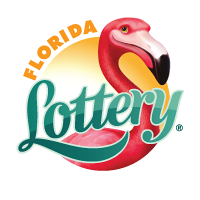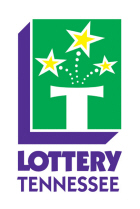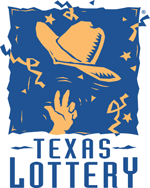In the United States, lotteries are run by 47 jurisdictions: 44 states plus the District of Columbia, Puerto Rico, and the U.S. Virgin Islands.
Powerball is an American lottery game offered by 44 states, the District of Columbia, Puerto Rico and the US Virgin Islands. It is coordinated by the Multi-State Lottery Association (MUSL), a nonprofit organization formed by an agreement with US lotteries. Powerball's minimum advertised jackpot is $40 million (annuity); Powerball's annuity is paid in 30 graduated installments or winners may choose a lump sum payment instead. One lump sum payment will be less than the total of the 30 annual payments because of the time value of money and also because one check for a much larger sum will be taxed at a greater rate than 30 checks each at a much lower sum will be taxed.

The Georgia Lottery Corporation, known as the Georgia Lottery, is overseen by the government of Georgia, United States. Headquartered in Atlanta, the lottery takes in over US$1 billion yearly. By law, half of the money goes to prizes, one-third to education, and the remainder to operating and marketing the lottery. The education money funds the HOPE Scholarship, and has become a successful model for other lotteries, including the South Carolina Education Lottery.

The Florida Lottery is a government-run organization in the state of Florida, United States. With numerous on-line and scratch-off games available, players have a wide variety of prize levels to choose from. Since it began, the Florida Lottery has continued to add variety to its portfolio of games. The Lottery has experimented with higher price points, enhanced traditional games, and introduced seasonal promotional games. In 2012, Florida was the third-ranked state in yearly lottery revenue with $4.45 billion; revenue passed $5 billion in fiscal year 2013. Florida passed the legislation to enact the lottery in 1986 by a two to one ratio.
The new lottery was spearheaded by Governor Bob Martinez and the Florida legislature with the mission of maximizing revenues for the enhancement of public education in Florida. The lottery was founded on the basis that it would provide the people of Florida the opportunity to benefit from additional revenues while providing the highest quality games available. The lottery's first game, MILLIONAIRE was a $1 scratch-off that was immensely popular. Within 17 days, the scratch-off game had paid back the entire $15.5 million to the state's general fund. Florida currently offers 10 terminal-generated games: Cash4Life, Mega Millions, Powerball, Florida Lotto, Pick 2, Pick 3, Pick 4, Pick 5, Fantasy 5, and Jackpot Triple Play.
Powerball is a lottery operated by Tatts Group under the master brand, the Lott and its licensed subsidiaries including New South Wales Lotteries in New South Wales and the Australian Capital Territory, Tattersalls in Victoria and Tasmania, Golden Casket in Queensland, and South Australian Lotteries in South Australia. The Government owned Lotterywest operates the lottery in Western Australia.

The New Zealand Lotteries Commission, known as Lotto New Zealand, is a Crown entity that operates nationwide lotteries in New Zealand. It was established in 1987 and operates under the Gambling Act 2003. Its oldest and most popular draw is the twice-weekly Lotto draw, which boasts a top prize pool of NZ$1 million. There are a number of other games, including: the four-draws-daily Keno, daily draw of Bullseye, and a variety of scratchcards known as Instant Kiwi and Instant Play. Instant Kiwi and Instant Play may only be played by persons 18 years of age or older, under the Gambling Act 2003. Powerball and Lotto Strike are optional extras with every Lotto ticket.
Andrew Jackson "Jack" Whittaker, Jr. won a 2002 lottery jackpot. His win of US$314.9 million in the Powerball multi-state lottery was, at the time, the largest jackpot ever won by a single winning ticket in the history of American lottery. After winning the lottery, he has had several brushes with the law and personal tragedies.
The Multi-State Lottery Association (MUSL) is an American non-profit, government-benefit association owned and operated by agreement of its 34-member lotteries. MUSL was created to facilitate the operation of multi-jurisdictional lottery games, most notably Powerball.

The D.C. Lottery is run by the government of Washington, D.C., the capital of the United States. The D.C. Lottery is a charter member of the Multi-State Lottery Association (MUSL). Games offered include Hot Lotto, Powerball, DC Daily 6, DC-5, DC-4, Keno, Mega Millions, and numerous scratch tickets.
The West Virginia Lottery is run by the government of West Virginia. It was established in 1984 via a voter referendum. It is a charter member of the Multi-State Lottery Association (MUSL). The Lottery offers games such as Hot Lotto, Powerball, Mega Millions, and scratch tickets. West Virginia has reinterpreted the amendment to its Constitution that permitted its lottery to include casinos, and thus the West Virginia Lottery Commission also regulates slot machines, which are marketed as "video lottery" and available at several hundred businesses; and five "lottery table games" casinos.

The Connecticut Lottery Corporation, also called the CT Lottery, is the official lottery in Connecticut. It was created in 1971 by then-Gov. Thomas Meskill, who signed Public Act No. 865. The first tickets were sold on February 15, 1972. The Connecticut Lottery offers several in-house drawing games; Connecticut also participates in Mega Millions and Powerball; each are played in 44 states, the District of Columbia, and the U.S. Virgin Islands.

The Tennessee Lottery is run by the Tennessee Education Lottery Corporation (TELC), which was created on June 11, 2003 by the Tennessee General Assembly. TELC derives its legal authority from the Tennessee Education Lottery Implementation Law, which the General Assembly passed in accordance with a November 2002 amendment to the state constitution establishing the lottery and approved by 58 percent of the voters.

The Texas Lottery is the government-operated lottery available throughout Texas. It is operated by the Texas Lottery Commission, headquartered in downtown Austin.

The New Jersey Lottery is run by the U.S. state of New Jersey. Its In-house draw games are: Pick-3, Pick-4, Jersey Cash 5, 5 Card Cash, Pick-6, and Quick Draw. Its multi-jurisdictional draw games are: Cash4Life, Mega Millions, and Powerball. The Lottery also sells scratch tickets. The New Jersey Lottery is headquartered at One Lawrence Park Complex in Lawrence Township, Mercer County.
The Arizona Lottery is a state agency in Arizona. It is a member of the Multi-State Lottery Association (MUSL). Draw games include Mega Millions, Powerball, The Pick, Fantasy 5, Pick 3, and Triple Twist. A variety of instant scratch tickets, or Scratchers, are also offered.
The Louisiana Lottery Corporation (LLC) is a government-run lottery that is used to generate revenue without increasing taxes. The proceeds of the Lottery go to the Minimum Foundation Program that funds public education in Louisiana. The daily activities involved with running the cooperation are handled by the president of the Louisiana Lottery Cooperation. The president is under the supervision of the Lottery's nine-member governing board of directors.
The Michigan Lottery offers numerous on-line and scratch-off games, giving players a wide variety of prize possibilities. Initiated under the authority of Public Act 239 in 1972, the games collect funds to support Michigan’s public school system.

The Colorado Lottery is run by the state government of Colorado. It is a member of the Multi-State Lottery Association (MUSL).
The Virginia Lottery is an independent agency of the Commonwealth of Virginia. It was created in 1987 when Virginians voted in favor of a state lottery. The first ticket was sold on September 20, 1988. All profits from Virginia Lottery ticket sales go to K-12 public education. In Fiscal Year 2018, the Lottery's profits totaled more than $606 million, accounting for approximately 9 percent of school funding in Virginia. That brought total Lottery profits in Virginia to more than $11 billion.
Regional rail, also known as local trains and stopping trains, are passenger rail services that operate between towns and cities. These trains operate with more stops over shorter distances than inter-city rail, but fewer stops and faster service than commuter rail. Regional rail services operate beyond the limits of urban areas, and either connect similarly-sized smaller cities and towns, or cities and surrounding towns, outside or at the outer rim of a suburban belt.








